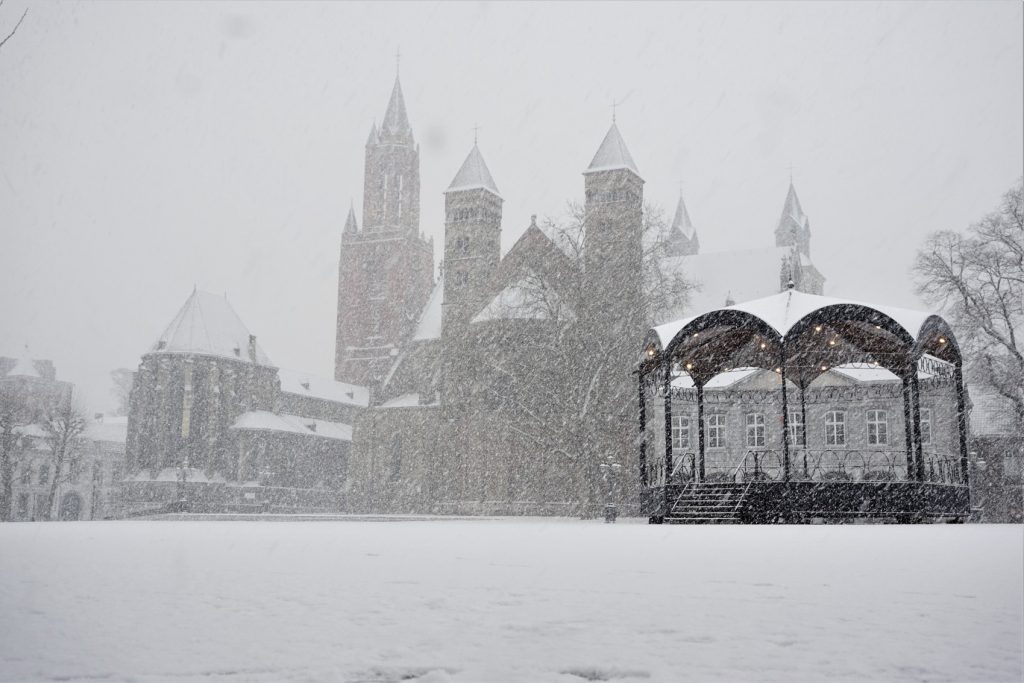How True Are Weerspreuken? Posted by Sten on Feb 27, 2018 in Culture
Last month, we looked at weerspreuken – weather proverbs. We tried to predict the weather with the weerbericht (weather forecast) for the next 14 days. The weerspreuken made predictions for February as well – let’s have a look at whether the weerspreuken from January about February checked out…
How True Were The Weerspreuken For February?
-
Januari zonder regen, is voor de boerenstand een zegen.
- January without rain, is a blessing for the farming classes.
Rain was predicted and came in January. That is supposedly a bad thing for farmers. However, the freezing temperatures – leading to vorst (frost) – are apparently not so bad for boeren (farmers). In fact, boeren want temperatures as cold as -10°C (14°F)! Why? At such temperaturen (temperatures), the vorst creeps deeper into the akkers (fields), where the ijskristallen (ice crystals) expand. This makes the kleigrond (clay soil) a lot losser (looser). This is very beneficial for the gewassen (crops) that are planted in the voorjaar (spring).
So this weerspreuk does not appear to be accurate! Unless January’s negative weather implications go further than just February… Let’s just knock on wood and hope for the best!
-
Heeft januari koude en droge dagen, dan zal in februari de sneeuw u plagen.
- If January has cold and dry days, then February shall plague you with snow.
The weather was wet and not very cold, which should mean that we should not get snow in February. Yet the opposite is true. Earlier this month, there was quite some snowfall in the Netherlands, and just yesterday, Monday, February 26th, there was some substantial white covering the low lands!
So this weerspreuk is not true. Or at least it was not this year. Well, let’s say it is pretty poor at explaining the weather.
-
Geef januari een sneeuwtapijt, dan zijn we gauw de winter kwijt.
- If January gives a snow carpet, then we will be done with the winter soon.
There was no snow in January, so the prediction was that we will not be done with the winter soon. And that is right! The winter is here now: We have dry, sunny but quite cold weather, and the occasional snow. The winter has come!
So this weerspreuk is accurate!
-
Als het vriest op St. Sebastiaan (20 januari), dan is het op 2 februari met de vorst gedaan.
- If it is freezing on St. Sebastian (January 20), then there will be no more frost after February 2.
We just need freezing temperatures, then we will have no more frost after February 2nd! That is good news… Especially because the weersverwachting predicts 0°C (32°F) on that day. If it stays like that or even goes below zero, we might get lucky!
The weersverwachting was right: On January 20, we had frost. Even though it really was just 0°C (32°F). But this also means that this weerspreuk is wrong. We have vorst right now – and it is long past February 2!
So this weerspreuk is not accurate.
So: of 4 weerspreuken, 1 is accurate, 2 are not and 1 may actually not be accurate if it predicts anything beyond February. Shaky result! It does not make me want to trust these weerspreuken too much…
Did you expect the weerspreuken to be accurate? How accurate were the weerspreuken in your country? Let me know in the comments below!

Build vocabulary, practice pronunciation, and more with Transparent Language Online. Available anytime, anywhere, on any device.




